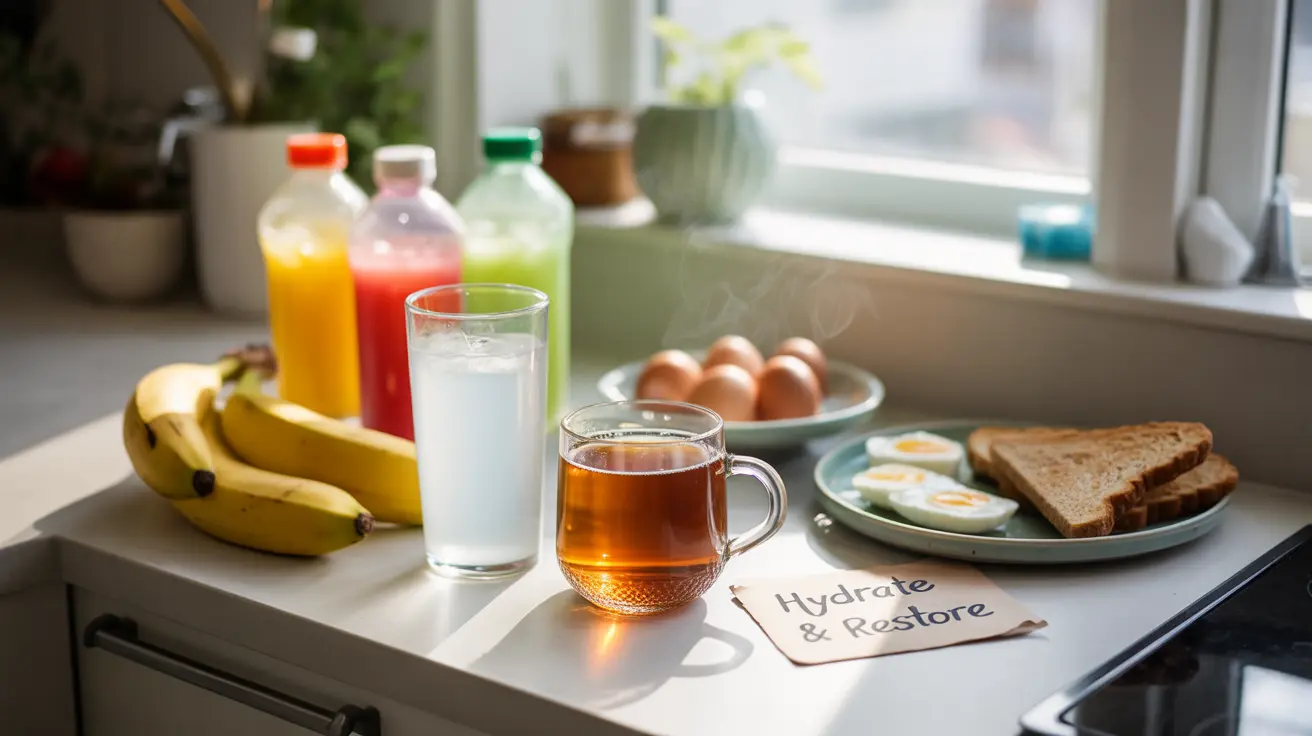Waking up with a hangover can turn any morning into a challenging ordeal. Understanding effective hangover self-care strategies is crucial for anyone who occasionally indulges in alcoholic beverages. This comprehensive guide will explore science-backed methods to manage hangover symptoms and promote faster recovery.
While there's no magical cure for a hangover, certain evidence-based approaches can help alleviate symptoms and support your body's natural recovery process. Let's examine the most effective strategies for hangover relief and prevention.
Understanding Hangover Symptoms and Their Causes
Before diving into recovery methods, it's important to understand why hangovers occur. Alcohol affects multiple body systems, leading to dehydration, inflammation, and metabolic imbalances. Common symptoms include headache, nausea, fatigue, and sensitivity to light and sound.
Hydration: Your First Line of Defense
Proper hydration is fundamental to hangover self-care. While drinking water won't completely cure a hangover, it helps address the dehydration caused by alcohol's diuretic effects. Aim to alternate between alcoholic drinks and water while drinking, and consume plenty of water before bed.
Optimal Beverages for Recovery
Beyond plain water, certain drinks can support your recovery:
- Coconut water for electrolyte replacement
- Sports drinks (sugar-free options preferred)
- Clear broths for sodium and mineral replenishment
- Ginger tea for nausea relief
Nutritional Support for Recovery
The right foods can help stabilize blood sugar levels and replenish nutrients depleted by alcohol consumption. Focus on easily digestible options that provide essential vitamins and minerals.
Best Foods for Hangover Relief
Consider these nutritious options:
- Bananas for potassium
- Eggs for cysteine and B vitamins
- Whole grain toast for steady blood sugar
- Clear soups for hydration and minerals
The Truth About Common Hangover Remedies
Many popular hangover cures lack scientific evidence. Understanding what works and what doesn't can help you focus on effective recovery strategies rather than wasting time on ineffective remedies.
Prevention Strategies
The best hangover self-care starts before drinking. Consider these preventive measures:
- Eat a substantial meal before drinking
- Choose lighter-colored alcohols
- Set and stick to drinking limits
- Stay hydrated throughout the night
- Get adequate sleep
Frequently Asked Questions
What are the most effective foods and drinks to help with hangover recovery?
The most effective options include electrolyte-rich beverages like coconut water, clear broths, and sports drinks. For food, focus on easily digestible items rich in vitamins and minerals, such as bananas, eggs, and whole grain toast. These help replenish nutrients and stabilize blood sugar levels.
Why doesn't drinking coffee cure a hangover, and what should I drink instead?
Coffee can actually worsen dehydration and may increase anxiety and jitters. Instead, opt for water, electrolyte drinks, or gentle herbal teas like ginger or peppermint, which can help with hydration and nausea without the negative effects of caffeine.
How does the type of alcohol I drink affect the severity of a hangover?
Darker alcohols (like whiskey and red wine) contain more congeners, which can lead to more severe hangovers. Lighter alcohols like vodka and gin typically result in milder symptoms. However, quantity always matters more than type.
Can drinking more alcohol the next day help relieve hangover symptoms, or is it harmful?
The "hair of the dog" approach is dangerous and can lead to unhealthy drinking patterns or alcohol dependency. It only temporarily masks symptoms while potentially causing more harm. Instead, focus on hydration and proper nutrition for recovery.
What lifestyle habits can reduce the risk of frequent or severe hangovers?
Key habits include eating before drinking, staying hydrated, choosing quality alcohols, pacing your drinks, setting limits, and ensuring adequate sleep. Regular exercise and maintaining good overall health can also help your body process alcohol more effectively.




